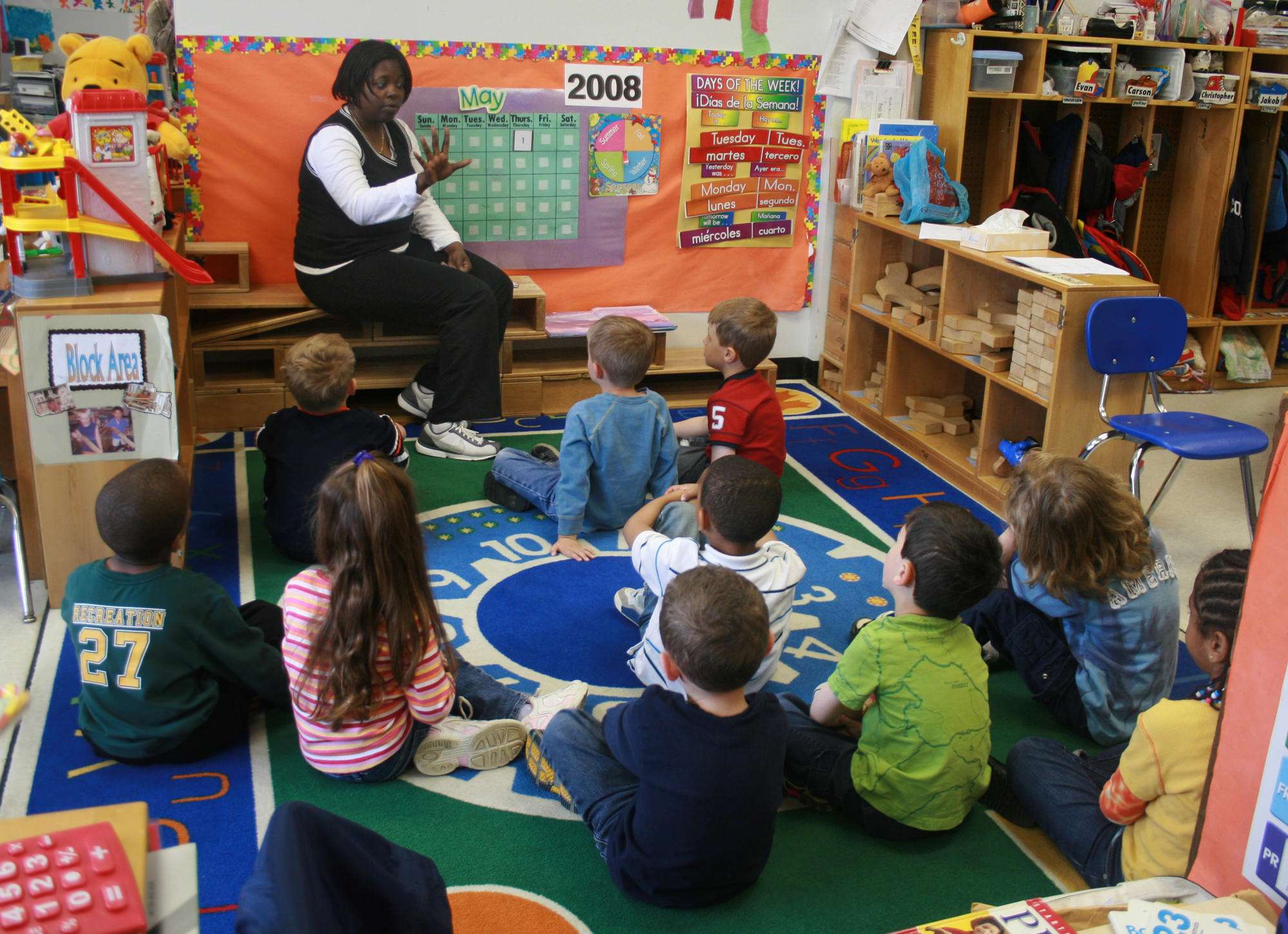Florida Kindergarden Teacher Is Almost Certainly Going to Get Canned for Refusing to Administer Tests


Perhaps in anticipation of the modern demands of adulthood, filling out paperwork standardized testing in schools is all the rage these days. Thanks in part to a federal cattle-prod-carrot-stick educational policy, teachers are spending more and more time preparing students for state tests. One Florida kindergarten teacher has boldly, if quixotically, decided to put her foot down.
Twenty-six–year veteran teacher Susan Bowles of Lawton Chiles Elementary School in Gainesville, Florida, recently posted a letter on Facebook to the parents of her students, declaring that she would no longer administer the Florida Assessments for Instruction in Reading (FAIR) test. She writes that her decision is "an act of civil disobedience" and that she is "hoping for government change in policy regarding testing."
Per the Florida Department of Education, teachers for kindergarten through the second grade must administer the FAIR test three times per school year, among other required assessments. Bowles estimates that preparing students and administering the FAIR test alone will consume six weeks of valuable class time. And while she is not against assessments per se, Bowles argues that the FAIR test is "taking away hours and hours of instructional time" without providing any information to teachers "significantly superior to what a typical kindergarten teacher would observe in her students."
Her refusal to administer the test comes at a steep price, however: She faces the distinct possibility of losing her job for breach of contract. Bowles acknowledges that her stand might just be a moot martyrdom if she is simply replaced by another teacher willing to administer the test in her stead. Indeed, as The Gainesville Sun reports, the principal has already taken over the testing of Bowles' students.
But Bowles' stand fdoes highlight the growing opposition to the standardization of education and to the current gristmill model of public schooling. A model of schooling which, by all metrics, commands an ever heftier fee for little to no improvement in student performance.
Editor's Note: As of February 29, 2024, commenting privileges on reason.com posts are limited to Reason Plus subscribers. Past commenters are grandfathered in for a temporary period. Subscribe here to preserve your ability to comment. Your Reason Plus subscription also gives you an ad-free version of reason.com, along with full access to the digital edition and archives of Reason magazine. We request that comments be civil and on-topic. We do not moderate or assume any responsibility for comments, which are owned by the readers who post them. Comments do not represent the views of reason.com or Reason Foundation. We reserve the right to delete any comment and ban commenters for any reason at any time. Comments may only be edited within 5 minutes of posting. Report abuses.
Please to post comments


Three times per school year, for three years? WTF. How do you even get a kindergartner to sit still and shut up for a test?
What do you test a kindergarten student on? Their ability to nap and play?
...AND narc on their fellow students, siblings and parents to Those In Authoritah.
Their understanding of foreplay, anal sex and condom use?
teachers are spending more and more time preparing students for state tests.
Once proggies have finally acheived that great one party dream, this will be the test:
1. (caucasion students only) Do you check your privilege first thing each morning when you awaken?
2. Do you love and adore dear leader without question?
3. Do you agree that the US Constitution in it's present form is a dusty old document which no one can read and that has to be eliminated entirely in order to develop a bold new progressive document of rule?
4. Do you agree that you don't pay enough taxes and need to start paying more immediately, for the greater good?
5. Do you agree that anyone answering no to any of the questions 1-4 should immediately be sent off to re-education camp?
If you answered yes to all questions, congratulation comrade, you passed. If you answered no to any, see question 5.
5. Do you agree that anyone answering no to any of the questions 1-4 should immediately be sent off to re-education camp?
Why even ask? They're in the first year of a 13 year stint in the camps.
So you pass if you answer all the questions incorrectly. That's an interesting kind of test.
How the hell do you give a standardized reading test the kindergarteners? They aren't even in the first grade yet. Are they supposed to show up to school knowing how to read?
I googled things child should know before kindergarten and got a bunch like the following:
http://www.libertycommon.org/r.....garten.pdf
There's a section on reading that seems reasonable.
And if they don't know that then what? Send them back to their parents?
Standardized testing in kindergarten is a farce.
I guess the proper use would be to help calibrate what's going on in the classroom, with the teacher, with the student, etc. The tests are, I imagine, also geared to assess progress through the school year more than where the child was at the start.
Right - help calibrate. Implying, to me at least, that there should also be considerations that include the fact that no two kids learn at the same rate. Unfortunately, these tests are used as a hammer where every problem looks like a nail.
But how fucking hard is it for a teacher to tell if a 5 year old can read or not? That's kind of what the job is, isn't it?
Which is, if you follow in the links, exactly what the FAIR test here is for.
Which makes the teacher's refusal to do her damned job that much more puzzling.
"Pays attention"?
Sheesh, hardly any *adults* are capable of *that*.
It's harder for adults to get the good stimulants.
They are given a few words they are just supposed to recognized; "sight words." They are scored on how many they recognize, and how long it takes them. Then they are given a few words they should be able to sound out. Again, they are scored on how many they get right, and how long it takes. The scores from each testing session are compared to try and judge progress over the school year.
Again, something any teacher worth their salt can probably figure out just by knowing the student.
"Are they supposed to show up to school knowing how to read?"
Yes. Yes they are.
My daughter was "assessed" at the beginning of kindergarten by a teacher who was gaming the assessments to make it look like the students knew less than they really did when they came in, and knew more than they really did when they came out.
I guess I would want to know what the purpose and uses of the test are before forming an opinion. Maybe it's used to identify children who are really going to need more help reading, or to see if the children are learning the basic reading skills that are now taught in kindergarten. I'm no fan of the multiplication of standardized tests, but that doesn't mean that some such tests might be useful.
It's not the tests that are bad or good, it's how they are used by people that turns them into abominations.
Part of the problem is that they don't employ the gom jabbar.
Easy solution: Separation of school and state.
99.44% of all school problems are solved by that.
Yes, how about a constitutional amendment for that? And, while we're at it, separation of commerce and state, and separation of my money and property and state.
Obviously that is the real answer. But the fact is that public education is very popular. So I think it is still worth discussing.
I remember taking a standardized test in kindergarten. The teacher had to read the questions out loud, along with all of the multiple choice answers. Pretty sure it took all day.
So you actually can have a teacher fired, apparently. Unfortunately, not for being a bad teacher...
Thank you, God, for homeschooling.
Duly noted, but -
God did not invent home-schooling, and isn't responsible for it's availability. Crediting God does a disservice to the people out there who form the communities and support networks for homeschooling. Thank them.
So how do you measure the effectiveness of a teacher? I think tests are a good way of doing that (maybe not for kindergarten though).
Every other job in the world seems to have an objective way of measuring the effectiveness of the worker. I would rather use tests to measure how a teacher is doing than letting them do their own peer reviews.
Finally, I would tell her that what she should really do is teach what she thinks is important and just don't give a shit if the kids fail the standardized test.
I'd be much more impressed with her theory on the dangers of testing if she could show me a class room of kids who I thought were doing well, but who had failed the standardized tests.
So how do you measure the effectiveness of a teacher?
People always ask that as if it is some great mystery. To any student or involved parent it is incredibly obvious who the good and bad teachers are. If administrators had the discretion to reward good teachers and get rid of the really awful ones (and were somewhat competent), there would be no problem assessing the effectiveness of teachers.
I think that the problem with testing is not so much that it is not accurate or anything like that, but that it is a huge waste of time and encourages teaching to the test.
"[S]ix weeks of valuable class time": Instead of not administering the test, why not just skip the prep? That should free up lots of class time.
I'm not sure whether these kids should take tests as they are too small. There is a problem, I think. Children learn how to take test and don't gain new knowledge, and essay writing, for example, is a daunting task for many students. But it is a useful skill to have handy throughout their academic careers. Students of all academic levels are asked to compose essays as this experience might bring benefits in the future (click here to learn more about essay writing). After graduating or before getting a real job, you will definetely have to write something (a report, a letter) and convince someone you can string together ideas with some semblance of logic and coherency.